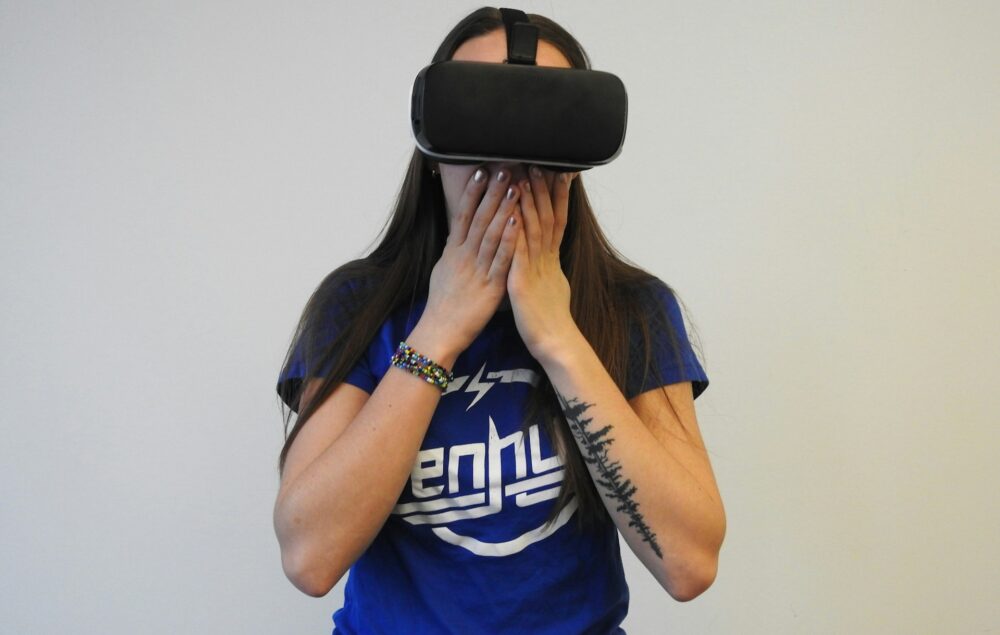Biotech
What Financial Impact Can the Health Sector Expect from the Metaverse Integration
The metaverse’s application to healthcare is projected to surge from $9.5 billion in 2023 to $79.6 billion by 2028, with an annual growth rate of 52%. Benefits include improved patient care and reduced healthcare costs, but challenges like data privacy and implementation costs remain. Spanish companies like Quantum Babylon and Abai are exploring metaverse solutions, though Spain lags behind in investment.

From $9.5 billion in 2023 to $79.6 billion in 2028 . This is the astronomical growth that the metaverse subsector applied to the health business will experience if the projections of the latest study by the consulting firm Markets and Markets are met. The boom translates into an annual growth figure of 52% . This confirms that, although the technologies linked to the metaverse are still in an incipient phase, the sector sees them as a powerful element .
“The global metaverse market applied to the world of health will grow strongly in the coming years,” summarized the study. Among the ingredients that fuel these projections are the potential benefits that virtual worlds can represent for the health sector.
“The metaverse will improve patient care, reduce the cost of health systems, minimize diagnostic errors and allow for greater precision and flexibility in surgical operations,” experts predict. However, there are also pitfalls, such as data privacy management and the high costs of implementing these systems.
Read more on the subject and find the latest financial news of the day with our companion app Born2Invest.
Spain, heading to the new world
“The metaverse will have the potential to transform the health sector through the creation of immersive and innovative virtual environments that will facilitate the interaction between health professionals, patients and other agents in the sector,” said Francesc Saigí, director, when asked by PlantaDoce. of the World Health Organization (WHO) Collaborating Center on eHealth and professor at the Open University of Catalonia (UOC).
In Spain , there are already health companies that are closely following this technology. This is the case of Quantum Babylon, a Spanish company born in 2018 and specialized in creating healthcare solutions in virtual environments. Specifically, it has focused on the development of immersive technologies, ultra-secure communication areas and work or health research environments within the metaverse.
“The level of interest that Spanish health professionals and researchers have in the metaverse is impressive,” said Juan Pablo Castillo , CEO of the company, in this interview with PlantaDoce. Even so, according to the manager, Spain is not among the countries that stand out the most within the health metaverse sector. “Unfortunately, we are somewhat behind: effective investments in this technology are being very limited,” admitted Castillo. For this reason, the majority of Quantum Babylon clients are international. “ Foreign entities are the ones that have more resources , but also more capacity to understand the impact that this technology will have in the medium term,” he highlighted.
Another Spanish company that, like Quantum Babylon, is working on fitting the world of health with the metaverse is Abai . In their case, they have designed 3D avatars capable of communicating with patients and becoming the gateway to the metaverse.
“The main objective of the application of the metaverse and digital humans in the health sector is to serve as support to our doctors and healthcare workers,” said Carlos Fernández, director of Innovation and Digital Transformation of the company, in an opinion article. He highlights that avatars could be used in patients who are shy when discussing topics such as addictions with the doctor, guiding citizens through health applications or even teaching classes to future doctors.
More maturity and more projects
“Spain is one of the countries with the greatest maturity in the development of new metaverse experiences,” assured Álvaro Manzano , general director of the Media Industry at Accenture , in statements to EFE. According to a study by this consulting firm, the projects developed for the health sector stand out especially. In fact, experts point out that the application options that the metaverse can have in the healthcare field are incalculable.
Firstly, in the healthcare field, the metaverse will open the ban on remote medical consultations by creating realistic virtual environments. “In them, patients will be able to interact with doctors, thus accessing more agile and efficient medical care without having to travel,” says Francesc Saigí. The expert also points out that the metaverse will be able to offer safe spaces for patients who need emotional support or rehabilitation and that it will help monitor the health of patients. “It will be able to provide real-time data to health professionals,” he said.
The metaverse will open the ban on remote medical consultations, but also on new health training methods
Beyond this, the metaverse will also play a relevant role in the field of education and training of new health professionals. “They will be able to enter the virtual space to perform surgeries, thanks to simulations,” he explained. In fact, this is already being done in Spain. The Madrid center Hospital La Paz already has its own space in the metaverse, where doctors can improve their techniques.
And what about the pharmaceutical industry?
Apart from the health care and training improvements that the metaverse promises, this new world also illuminates pharmaceuticals. “In the field of drug research and development, laboratories will be able to use virtual simulations to address the challenge in a simpler way,” said the UOC expert. According to him, simulations will allow new substances to be tested and optimized before their production and distribution, which will reduce research costs and time.
Furthermore, at the experimental level, the metaverse will facilitate the collection and analysis of data related to clinical and epidemiological studies. “This will improve the understanding of diseases and treatments,” added Saigí. Finally, within pharmaceutical companies, the metaverse can also be used as another communication channel. “It will facilitate collaboration between researchers and work teams that are in different geographical locations, becoming an agile and efficient communication space,” he concluded.
__
(Featured image by Hammer & Tusk via Unsplash)
DISCLAIMER: This article was written by a third party contributor and does not reflect the opinion of Born2Invest, its management, staff or its associates. Please review our disclaimer for more information.
This article may include forward-looking statements. These forward-looking statements generally are identified by the words “believe,” “project,” “estimate,” “become,” “plan,” “will,” and similar expressions. These forward-looking statements involve known and unknown risks as well as uncertainties, including those discussed in the following cautionary statements and elsewhere in this article and on this site. Although the Company may believe that its expectations are based on reasonable assumptions, the actual results that the Company may achieve may differ materially from any forward-looking statements, which reflect the opinions of the management of the Company only as of the date hereof. Additionally, please make sure to read these important disclosures.
First published in PlantaDoce. A third-party contributor translated and adapted the articles from the originals. In case of discrepancy, the originals will prevail.
Although we made reasonable efforts to provide accurate translations, some parts may be incorrect. Born2Invest assumes no responsibility for errors, omissions or ambiguities in the translations provided on this website. Any person or entity relying on translated content does so at their own risk. Born2Invest is not responsible for losses caused by such reliance on the accuracy or reliability of translated information. If you wish to report an error or inaccuracy in the translation, we encourage you to contact us

-

 Crypto2 weeks ago
Crypto2 weeks agoCaution Prevails as Bitcoin Nears All-Time High
-

 Fintech3 days ago
Fintech3 days agoOKX Integrates PayPal to Simplify Crypto Access Across Europe
-

 Africa1 week ago
Africa1 week agoBridging Africa’s Climate Finance Gap: A Roadmap for Green Transformation
-

 Business1 week ago
Business1 week agoThe TopRanked.io Weekly Digest: What’s Hot in Affiliate Marketing [uMobix Affiliate Program Review]






















